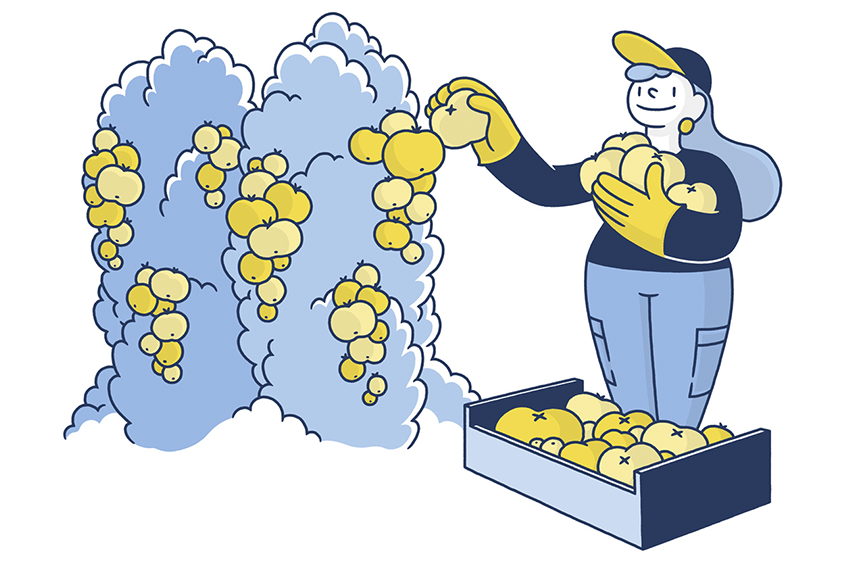Illnesses and accidents
It is the legal requirement for the employer to have an occupational health care contract in place, including new employee health examinations and assistance in the event of an accident at work. Employers may take a more extensive occupational health care cover with medical services on a voluntary basis. If you feel unwell, tell your supervisor immediately in person. If necessary, the employer must instruct you to see a doctor.
If the employer’s occupational health care contract does not include medical treatments, you may have to pay for the visit to a doctor yourself.
| If you arrive in Finland for seasonal agricultural work from outside the EU, you must apply for the right to use public healthcare services from Kela. You can apply for this right from Kela using form 139 Certificate to entitlement to medical treatment in Finland (seasonal workers).
If you arrive in Finland to work for less than 90 days, you can apply for the right from Kela as soon as you have received your certificate of seasonal work from the Finnish Immigration Service, or a seasonal work visa issued by the Finnish diplomatic mission. The right of persons working under a longer residence permit to public healthcare services and the right to be covered by Finnish social security will be decided based on your application after you have received your personal identity code.
For this purpose, Kela will issue a Certificate of entitlement to medical care in Finland. On presenting this certificate when using public health care, you will receive the treatment you need at the same price as those living in Finland.
More information: www.kela.fi |
It is a legal requirement for the employer to have accident insurance in place. If you have an accident at work, tell your employer immediately. It is important that the injury situation is recorded. Stop working and go to the nearest emergency clinic.
You have the right to be absent from work in the event of a sudden illness with your own notice for a maximum of two days. However, for justified reasons, the employer may request you to see a doctor. The employment contract may not be terminated on the basis of an incapacity to work due to illness or accident.
You will be paid wages for the duration of your incapacity to work. If your employment has continued for a week, you are entitled to receive 50% of your wages for nide days following the date you became ill. If the employment has continued for a month, you are entitled to wages for the working days included in a 28-day period. If you have previously worked for the same employer for at least 3 months, you are entitled to wages during illness after 14 days from returning to the service of the same employer for a second season, and immediately at the start of a third season. In short employment contracts lasting less than 10 months, you are not entitled to wages for the first day of your illness.




